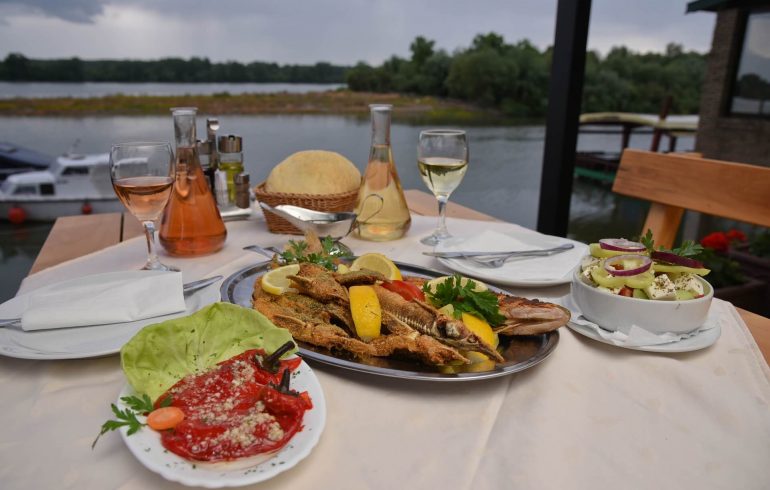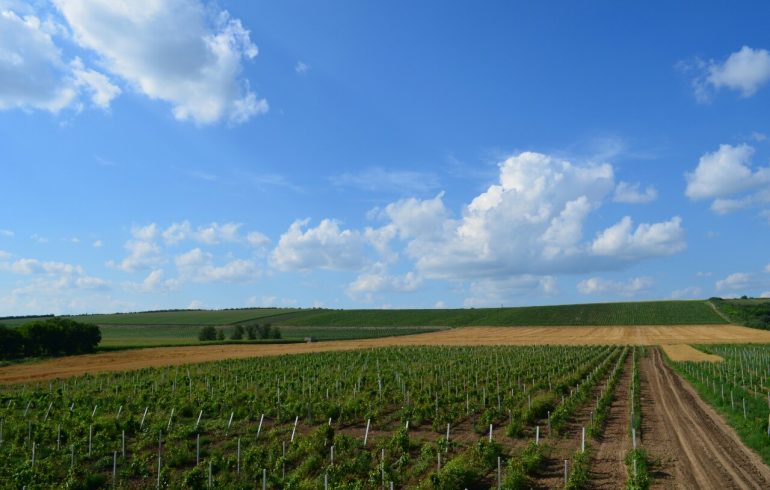Gastronomy
The whole of Vojvodina, and thus Srem, is known for its gastronomy. The cuisine of Srem has the characteristics of classic Serbian cuisine, which is still very specific due to the presence of other peoples in this area. It was formed as a reflection of geographical characteristics and social events.
The diet and preparation of food in Srem was greatly influenced by the arrival of Germans. They brought their dishes, customs, ways of preparing winter preserve, wine, fruit and vine growing, so the Serbian population adopted the lot. Also, in Srem, there is a great influence and wealth of culinary knowledge of the Hungarian, Romanian and Slovak cuisine.
The influence can be seen in the names of many dishes that have been preserved to this day. From the German language there are names: fruštuk – breakfast (das Frühstück), jauzna – snack (die Jause), foršpajz – appetizer (die Vorspiese), rinflajš – beef (die Rindfleisch), cušpajz – stew (die Zuspeise), while from Hungarian remained perklet/meat fried in its own sauce (Pörkölt), goulash (gulyás), paprikaš (paprikás), etc.


Salty specialties, such as soups, sauces, dough and pasta, goulash, perkelt, but also sarma, stuffed peppers, moussaka, beans, fish dishes, grilled and baked dishes, but also many Srem desserts, such as: donuts, strudel, gomboce, various pies and kouglofs in numerous restaurants and isolated farms (salaš) in the municipality of Inđija.
Wine
The tradition of viticulture and wine production in Srem and Fruška Gora dates back to the Roman period. Although it is believed that vines were grown by the Illyrians in the Pannonian Plain, and thus in Srem, the beginning of the development of viticulture in this area is associated with the Romans and Emperor Marcus Aurelius Probus, who lifted a two-century ban on wine production in the Roman provinces and planted the first vine in this area, not far from Sirmium (today’s Sremska Mitrovica).
Today, Italian Riesling is the most widely grown white variety in the area of Srem, followed by Traminer, Sauvignon, Sila, Rhine Riesling etc. Of the black grape varieties, Frankish, Portugieser, Merlot, Probus, Pinot Noir and others are mostly grown here. The Fruška Gora cellars also produce the only dessert wine in Serbia – bermet (sweet, fragrant, aromatic wine that resembles Italian vermouth).
Visits to wineries have become an unavoidable part of tourist tours. In the territory of the municipality of Inđija, there are several attractive wineries open for tourists.





